|
July, 2005
Aug. 2005
Sept. 2005
Oct. 2005
Nov. 2005
Dec. 2005
Jan. 2006
Feb. 2006
Mar. 2006
Apr. 2006
May 2006
June 2006
July 2006
August 2006
September 2006
October 2006
November 2006
December 2006
January 2007
February 2007
March 2007
April 2007
May 2007
June 2007
July 2007
August 2007
September 2007
October 2007
November 2007
December 2007
February 2008
March 2008
April 2008
May 2008
June 2008
July 2008
August 2008
September 2008
October 2008
November 2008
December 2008
February 2009
March 2009
April 2009
May 2009
July 2009
August 2009
September 2009
November 2009
December 2009
January 2010
February 2010
March 2010
April 2010
May 2010
June 2010
July 2010
September 2010
October 2010
November 2010
December 2010
January 2011
February 2011
March 2011
April 2011
May 2011
June 2011
July 2011
September 2011
October 2011
December 2011
February 2012
April 2012
ČERVENÁ BARVA PRESS NEWSLETTER
Gloria Mindock, Editor Issue No. 74 June, 2012
INDEX
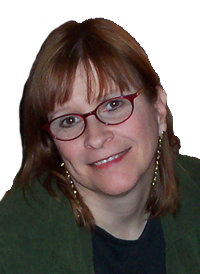
Welcome to the June, 2012 Newsletter
Hi! Welcome to the June newsletter.
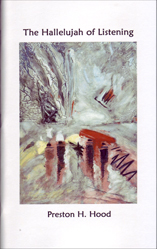
Congratulations to Preston Hood, who won first place for his chapbook, The Hallelujah of Listening,
(Červená Barva Press, 2011) from the 2012 Maine Literary Awards given by the Maine Writers and Publishers Alliance.
Way to go Preston!
Order The Hallelujah of Listening here!
I have been looking for a space to hold the Vaclav Havel tribute. So far, some of the places are very expensive to rent.
One place wanted $500.00 for just 3 hours. The press just can't afford that. If anyone knows of any spaces that
are cheaper in the Somerville/Cambridge, MA area, please e-mail me. I find the search very frustrating.
Bill and I have been very busy and we should be releasing many full-lengths this summer as well as chapbooks
so stay tuned. We have been working like little elves!
Our intern, Stephanie Callan, finished her internship with Červená Barva Press in the beginning of May from
Pine Manor College. I would like to thank her for all the work she did for the press. You will see an
interview from her in the newsletter this month with David P. Miller
and in July with Noel Sloboda.
Thank you so much Stephanie for everything!!!!!!
I have many book reviews forthcoming this summer which is exciting. I will be posting at least one of
them every month this summer. If you want any poetry or fiction books considered, send them my way.
There is NO guarantee that I will choose your book for review. I receive many books and not everything
is to my liking. I forward to my reviewers only books that interest me. Sorry.
Berislav Blagojevic, my friend in Serbia & Herzegovina, just had a wonderful new short
story published called, "Childhood Fragments."
Check it out at:
http://berislavblagojevic.wordpress.com/2012/06/05/childhood-fragments/
or http://www.theshortstory.eu/stories/berislav-blagojevic
If you are attending the conference at Hunter College this Saturday, June 9th in NYC, please check out
the Small Press Panel. On the panel: Gloria Mindock (Červená Barva Press), Mark Pawlak (Hanging Loose Press),
Jim Schuette (Marion Street Press), Terry Richard Bazes (author Lizard World)
and Panel Moderator Susan Tepper.
This conference has been hailed as, "One of the best writers' conferences in the country."
Come join us at our panel. We would love to see you!
Saturday, June 9
HUNTER COLLEGE
68th Street & Lexington Ave.
NYC
www.hunter.cuny.edu/ce
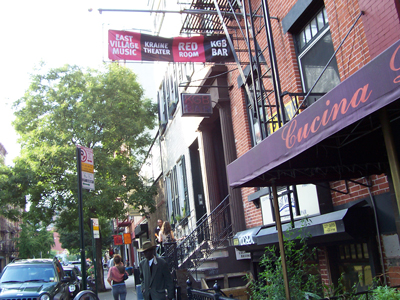
On June 23rd at the KGB Bar, many writers who are a part of the online writers group, Fictionaut will be
gathering to read and party at the KGB Bar. If you are a part of Fictionaut, just show up and read in the
open mic. The public is invited to come listen to some amazing writers who are coming from all over the world.
It promises to be quite a bash!
Saturday, June 23
7pm
@ KGB Bar
85 East 4th Street (second floor)
NYC (East Village)
Harris Gardner and I are very happy to welcome four poets who are instrumental and part of the
William Joiner Center/Umass Boston to the First and Last Word Poetry Series on June 19th.
We hope to see many of you at this special reading event.
THE CENTER FOR THE ARTS AT THE ARMORY
POETRY AT THE CAFÉ
191 HIGHLAND AVENUE
SOMERVILLE, MA
TUESDAY, JUNE 19th
7:00 PM /ADMISSION: $4.00
READING AND OPEN MIC
Bass Guitarist: Ethan Mackler
(accompaniment optional on open mic)
Kevin Bowen is the former director of the William Joiner Center for the
Study of War and Social Consequences at the UMass-Boston. He is the author of three collections
of poetry: Playing Basketball with the Viet Cong, Forms of Prayer at the Hotel Edison,
and Eight True Maps of the West. He has co-edited several anthologies of prose and poetry.
Kevin is the recipient of a Pushcart Prize, fellowships in poetry and fiction from the
Massachusetts Cultural Council and a poetry fellowship from NEFA.
Preston Hood's poems have appeared in Michigan Quarterly Review, Rattle, Hayden's Ferry Review, Salamander,
The Café Review, and other literary publications. His book, A Chill I Understand, (2006) received Honorable Mention
in the 2007 Maine Literary Awards. His manuscript, The Hallelujah of Listening was a finalist in the 2010 Plan B Chapbook Contest.
Červená Barva Press published it in 2011.
T. Michael Sullivan is the director of the annual Writers' Workshop sponsored by the William Joiner Center for the
Study of War and Social Consequences at the University of Massachusetts Boston. He has been a high school English
teacher and a journalist, winning regional and national awards. Subsequently he was a humor columnist. His poetry
has appeared in various publications, most notably the Irish Poetry Review. He also writes humorous rap songs.
Bruce Weigl's previous collections include After the Others (1999), Sweet Lorain (1996),
and What Saves Us (1992), all published by TriQuarterly Books/Northwestern University Press. His poetry, essays, articles,
and reviews have appeared in such magazines and journals as The Nation, The New Yorker, The Paris Review, and Harper's.
Weigl has been awarded the Pushcart Prize, fellowships at Bread Loaf and Yaddo, and a grant from the National
Endowment for the Arts.
The Center for the Arts is located between Davis Square and Union Square. Parking is located behind the
armory at the rear of the building. Arts at the Armory is approximately a 15 minute walk from Davis Square
which is on the MTBA Red Line. You can also find us by using either the MBTA RT 88 and RT 90 bus that can be
caught either at Lechmere (Green Line) or Davis Square (Red Line). Get off at the Highland Avenue and Lowell
Street stop. You can also get to us from Sullivan Square (Orange Line) by using the MBTA RT 90 bus. Get off
at the Highland Avenue and Benton Road stop.

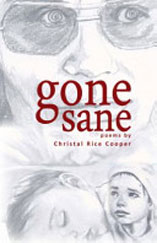
Book Review by Irene Koronas
gone sane
Christal Rice Cooper
River King Press
ISBN: 978-0-9650764-4-9
2011 $15.00
'gone sane' is a large collection of story poems, ranging
from Jacqueline Lee Bouvier Kennedy Onassis, to Miss
Nobody, Katie, an abandon baby in China. We meet all
the different poems presented as a cry:
"In the dark kitchen
I trace the invisible cuts
on my face, my neck,
my arms, chest.
My finger becomes the knife,
puncturing his handiwork on my wrists
until trickles form.
I breathe in the scent of blood,
as once I breathed him,
embedding the knife in my chest.
in. out. in. out. In,
till thick red ribbons of flesh
overflow the kitchen sink.
And my heart moves fast
inside of me
like he used to do..."
Some of the poems in this collection are not for the faint of heart,
they belong here because they happened. With clear images and phrases
Cooper reads the life, relates poetically how one life differs from
another and how each life lesson is replayed. The poems ask the
reader to comprehend the actualities:
"I come through the door
as a cold night comes.
Cutting.
My hand on the blade,
her heart in gaps,
chaffed lips kissing her damp mouth bloody.
Good night.
Cold,
the handle in my hand,
her soft soul cutting the velvet of night."
Cooper chronicles the lives in these poems with the pen of a journalist.
We read and come to understand the poems are as they are meant to be:
"...He wore pajamas, they said
with sad blue lambs,
sweat rolling down his legs.
And blood.
He hid behind a bush
unspeaking,
wiped the blood and smelled it.
Mother's.
The way Father taught him the hunt..."
Irene Koronas
Reviewer: Červená Barva Press
Irene Koronas
Poetry Editor: Wilderness House Literary Review
www.whlreview.com
Reviewer: Ibbetson Street Press

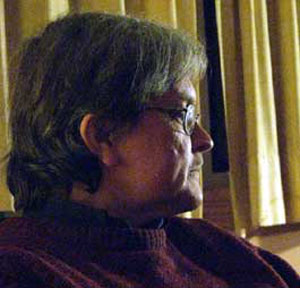
What is your writing process?
At present, my poetry comes primarily from direct observation. I make daily notations in a daybook of things
seen or heard, human interactions, sometimes internal perceptions. Every couple of weeks or so, I look back at
my entries to see what stands out. It's most interesting to me when two or more entries, made separately, set
off or resonate with each other. Some of these notations turn into poems fairly quickly, with the daybook just
a short stopover. Although most of my writing comes from this kind of source, I have longer poems that describe
events in more detail, or are inspired by older memories. I usually draft my poems by hand and then type them out.
The first revisions happen at that stage. I show every poem to my wife, Jane Wiley, for her response. She is a
visual artist, my first and best reader. And of great importance, I've been meeting for three years or so with a
group of faculty writers at Curry College, where I am a librarian. The group was formed and is facilitated by the
poet Kara Provost. We meet weekly during the school year to share our writing and provide mutual critique. We also
schedule group write-on-site times, which are really valuable for flat-out-occupied faculty members. This group
has helped my writing grow more than I can say. I would not be where I am now without them.
What made you want to start writing poetry in the year 2007?
Was it connected at all by joining the writing group at Curry College?
No, not quite. Although the writers' group is crucial to me, a couple of other events laid the groundwork. It's not so
much that I wanted to start writing in a particular year, but rather that it finally became possible then. I attempted
to write poetry before 2007, going back to my high school years. But there was no momentum. In 2006, I took a
weekend workshop with Jane Hirshfield, at the Zen Mountain Monastery in New York State, and three poems came out
of that weekend. Although I wouldn't bring any of them forward now, this was a remarkable and cheering outcome.
Still, there was not quite any movement forward. I had three poems, and that was all. In 2007, though, I finally
revisited a set of writing exercises dating back years earlier. In 1997 I attended the New England Artists' Trust
Congress in Newport, New Hampshire. There, I attended a workshop with Wesley McNair. At the end of the workshop,
which was mainly analytical, McNair gave us some writing prompts. It took me over ten years to get to these, but
when I did, I had another small set of poems to add to those from the previous year.
How did you join the writing group at Curry College?
I had participated in a number of poetry readings at Curry, presenting other people's work. I've also been, for many
years, a faculty reader of student poetry for the college's annual arts journal. The selections are made by the student
board, but faculty members provide anonymous input. But in 2006, following the Hirschfield workshop, I joined in an
open mike at Curry with my first few attempts. So at that point I just barely established myself as someone who wrote
poetry as well as read it. Karen Damato, a poet who is the faculty advisor for the arts journal, asked me to join the
writers' group when it got started something over a year later. At that point I felt a little like
"The Man Who Wrote One Poem" that Robert Francis wrote about so amusingly. A man who could claim to be a
poet, or not, depending on what suited the situation.
Your book of poetry, "Caution: Many People Walking" is published with the Origami Poems Project, an organization
that releases free poetry. Can you please describe your experience with Origami Poems,
and with "Caution: Many People Walking?"
I was introduced to the Origami Poems Project by Kara Provost, who has five of these available now.
The Project calls these micro-chapbooks, by the way. It's a charming tiny format, an eight-page booklet
made from a single sheet of paper. You just have to submit your work, using a template that they provide.
The folks who head the project, Lynnie Gobielle and Jan Keogh, work with you to develop these into downloadable
PDFs. It's a project with a lot of heart, and they're so easy to carry with you, to give away. Lately I have
taken to leaving them in places like restaurants, slipped in with the check.
The cover photograph shows a sign reading "Caution: Many People Walking" in an area where there are in
fact no people, only a single car in the distance. I took the picture along a stretch of my morning walk
to work. On that day, there was going to be a breast cancer walk in the area, and there were signs warning
motorists about a lot of pedestrian traffic. Out of context, it's such an anomalous image. The photograph
has no relationship with any of the poems in the set, but I was casting about for a title, and thought that
it would do as well as any. I am planning to make a second booklet, with the title "Probably Not Haiku." That
title will have more of a relationship to the content.
At the end of March you put on a performance at Mobius in Cambridge, called "Low Concept."
Could you please describe this project?
I have a long background in theater and performance, with an emphasis on experimental or fringe forms. I was invited
to do an experimental theater piece by Jane Wang, a member of the Mobius Artists Group. She asked me to develop a
performance as part of the "Art of the UnGrand" series she is now curating. I worked with four other members of the
Artists Group on the piece.
The title "Low Concept" is almost a kind of joke, since it's not high concept theater. When I began work on the piece,
I had no idea what I would do. I didn't have a concept at that point, never mind a "high concept." I began by going
through old performance notebooks that I'd kept over the years, to see if there was anything I could resurrect. I
also turned to Oblique Strategies for some help. It's a card deck created by Brian Eno, intended to stimulate
creative thinking in a sideways or oblique fashion. The first card I turned up said "Decorate, decorate," and I
just went from there. I also consulted the I Ching, which I had not looked at in about twenty years.
The end result was that "Low Concept" was a sort of soup of ideas, developed in collaboration with four other
people. There were various degrees of independence and interdependence among us. We were performing simultaneously
but not always in direct connection, with related but separate actions. I intended it as a kind of collage that
I hoped would have some kind of structural unity, even though the raw materials were quite disparate.
How did you become involved with Mobius?
I moved to Boston in the late 1970s, with my eyes open for experimental theater. The term "performance art" wasn't
quite in use at that point. I saw posters for a performance piece called Tantalus, presented by Mobius Theater and
directed by Marilyn Arsem. "Mobius Theater" was the name of the Mobius Artists Group in its first incarnation. Tantalus
was based loosely on Greek myth, with an unusual approach to audience interaction. I enjoyed it a good deal, so when I
saw another poster for Persephone and Hades, the next piece by Mobius Theater, I made sure to see that as well. This was
in the spring of 1980. That summer, I saw an audition ad for the role of Hades; the man who originally played the role
decided not to continue. I auditioned and got the role, which began my association with Mobius. It seems odd now to think
about answering an audition ad for anything associated with Mobius, but at that time it was an experimental theater
company. Mobius evolved over time into the multi-disciplinary, Protean artists group that it has been for about 25
years. Marilyn is one of my oldest friends, and I am working on a prospective book chapter about her early work with
Mobius.
Your bio refers to poems that you wrote in high school as "political doggerel." Would you mind describing these poems?
What I mean by that is that they were sincere, politically passionate, but predictably rhymed and not based in
lived experience. I don't have any of them around any more. I mention them because there are many of us who put
our adolescent passions into rhyme. I'm just saying, I've been there too. And then decades went by.
Do you think that your work in theater influences your poetry, or vice versa?
Yes, they are definitely related. The act of speaking is a physical act; most people think that its physicality
is only incidental to mental activity. Speaking is bodily, a carnal act. We don't generally understand that how
one makes speech is intimately part of what one communicates. For example, if you say something in German, you
cannot translate the actual experience of that into English, and you can't substitute anything. The specificity of
language, not only its sound but its physicality, is what unites something written and the speaking act connected
with it. In this regard, my reading of poetry is directly influenced by my acting experience. It's not that I wish to
be "theatrical" in an obvious sense, but that I understand the nature of spoken language as a medium. I think in this
connection of the poet Robert Pinsky, who often says that writing and reading poetry is related to breath and the
length of breath.
This is related to my experience with text/sound poetry, which is a poetry that is based in the elements of spoken
language, how words are said. It's a spoken word form, but quite different from slam or performance poetry. Words
are used for their sounds and their textures, not necessarily their meanings. Not only words, but syllables and
phonemes; I think of text/sound as musical composition for the speaking voice. Although much less well-known than
current spoken word performance forms, it's global in reach, and has been in existence for about a hundred years,
at least as far back as the Dada movement. I did a fair amount of text/sound work with Mobius in years past, and
wrote several pieces of my own. But I don't count this in the same way in my "poet" chronology, because text/sound
notations are like musical scores. They can be read by specialists, but text/sound doesn't have the same life on the
page that we expect from most poetry. On the other hand, with concrete poetry the situation is usually reversed!
Other than "Low Concept," are there any other projects that you're working on right now? Or that you're planning to
do in the near future?
I'll be investing more in poetry, and focusing more on submissions, which I haven't pursued as much as I should. Also,
this year marks the 100th anniversary of the birth of the composer John Cage, whose work I have studied, and sometimes
performed, since college. His music, writing, and visual art mean a great deal to me. Cage passed away at 79, but
there's a lot of activity around his centennial. It's likely that I'll perform in a performance of Cage's work
later this year.
Do you think that John Cage has influenced your work as a poet and as a performer?
That's a good question without an obvious answer. My poetry has no surface resemblance to his work, and my approach
to writing does not make use of the chance operations that were so characteristic of his working method. Cage also
wrote poetry, which I very much enjoy although it can be quite difficult. I have also gotten great pleasure out of
Jackson Mac Low's poetry, which typically makes use of chance operations in a manner distinct from Cage's.
Cage's and Mac Low's poetry both have something in common with text/sound, and to perform it requires some facility
with taking the speaking voice beyond its usual expressive range.
I don't write as they do, at all. But I do feel that Cage's work inspires my writing. This brings us back to what we
first spoke about: the practice of direct observation, as well as attention to the exact specificity of sound events.
It is not possible to truly enjoy Cage's music without a willingness to give yourself over to the sound phenomena they
create, instant by instant. You have to let go of the insistence that one sound event must somehow lead to another one.
That's putting it simply, but I don't want to go on at too much length. From that point, I move out to an appreciation
of sights, sounds, colors, movements, actions, and expressions in their precise character. I want to record those as
they are to begin with, then find their juxtapositions and possibly greater meanings through relating them. I am
interested, too, in the idea of what "doesn't belong together" in the same poem, and how by having them together
anyway you create a world, as the disparate elements of many of Cage's compositions do. Also from Cage, I have learned
about silences, and how they differ depending on their settings - what frames them. I don't have long silences
in my poetry (Cage and Mac Low do), but the matter of gaps or lacunae in poetry is of great interest. How exactly
do you not-say something, and when?
You'll find that a great many people have been positively influenced by John Cage, in ways that have little apparent
connection to his own work. For me, when it comes to poetry, I want the training in sharpened hearing that comes from
listening to his music to result in acute observation and recording of experience. And, I hope, the ability to convey
that experience to readers and listeners. It sets the bar pretty high.


If you would like to be added to my monthly e-mail newsletter, which gives information on readings,
book signings, contests, workshops, and other related topics...
To subscribe to the newsletter send an email to:
newsletter@cervenabarvapress.com
with "newsletter" or "subscribe" in the subject line.
To unsubscribe from the newsletter send an email to:
unsubscribenewsletter@cervenabarvapress.com
with "unsubscribe" in the subject line.

Index |
Bookstore |
Gallery |
Submissions |
Newsletter |
Interviews |
Readings |
Workshops |
Fundraising |
Contact |
Links
Copyright © 2005-2011 ČERVENÁ BARVA PRESS - All
Rights Reserved
|

